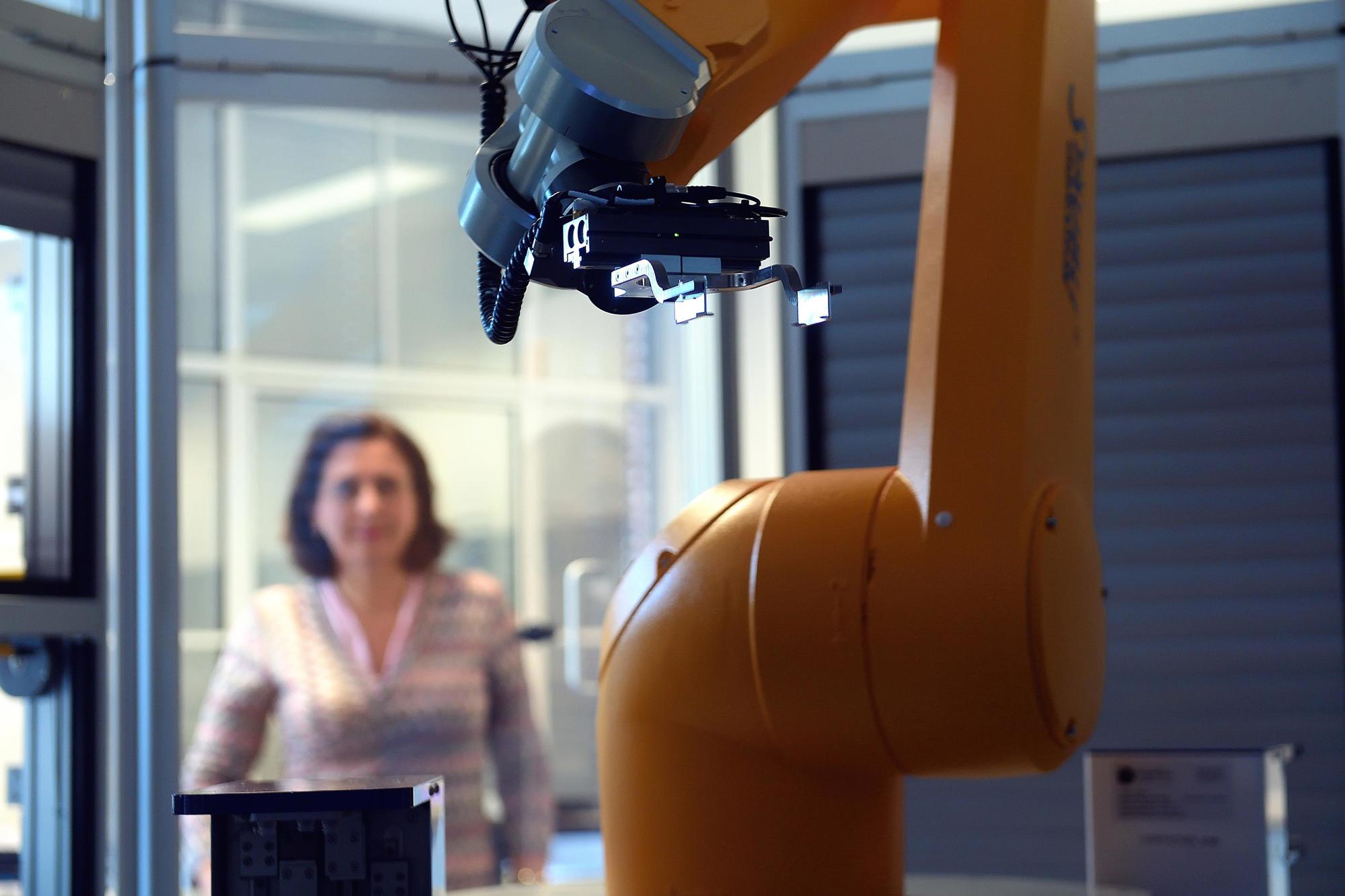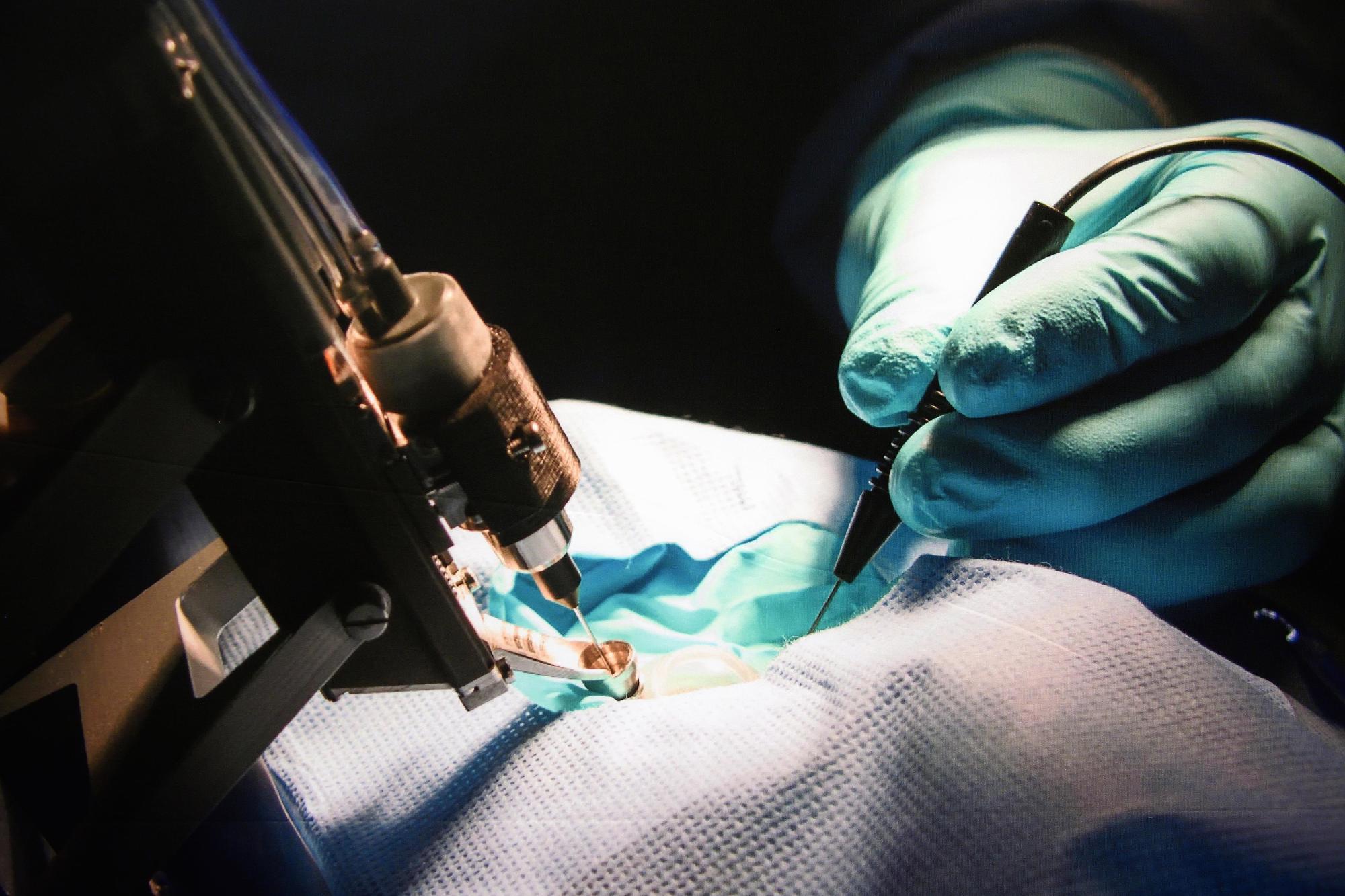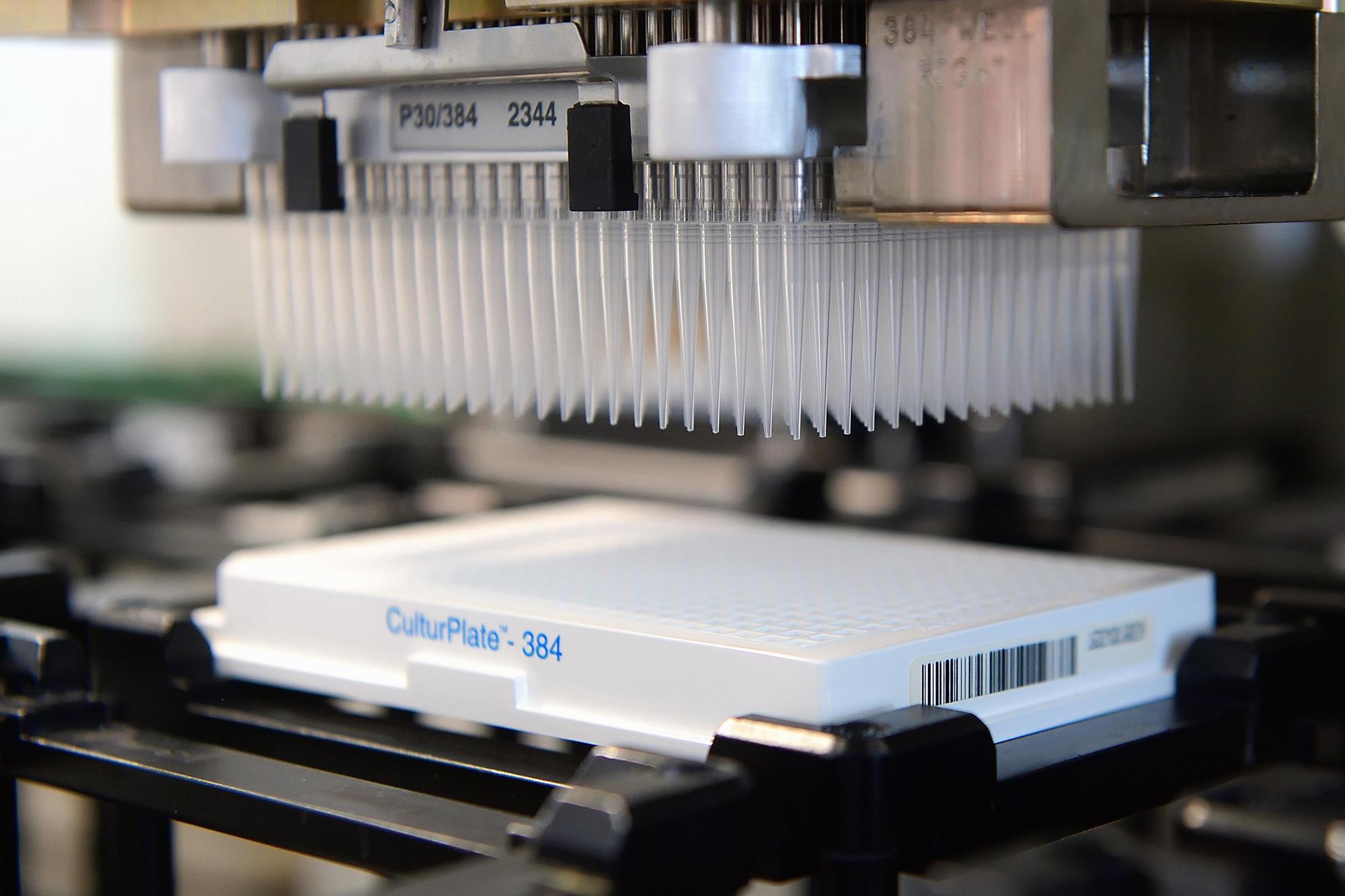North Brabant can rightly call itself a hotspot when it comes to pharmaceutical and medtech developments. Half of the total production value in Life Sciences & Health in the Netherlands (approximately ten billion euros) is accounted for by North Brabant. Almost a quarter of all the jobs in this sector are in this province. Biotech, in particular, is growing at a staggering rate: since 2014, the number of newly established businesses in this industry has grown by 43% and the number of jobs has doubled.
Brainport (medical technology) and North East Brabant (pharma) are the key concentrations of Brabant's activities in this sector. Furthermore, e-health solutions can be found across the province. So businesses and professionals involved in LIfe Sciences in the Netherlands cannot ignore Brabant.
The ‘Life Sciences & Health Sector’ study commissioned by the Brabant Development Agency (BOM) presents a broad picture of the role played in this sector by Brabant’s companies, campuses, knowledge institutions and authorities. “Between 2014 and 2018, the number of LS&H sites in Brabant grew by over 11%”, says BOM project manager Thijs Taminiau. “And the growth in jobs was even higher at 15.4%.” According to Taminiau, the constructive collaboration model that is so typical of Brabant is one of the main reasons for the province's unique position in this sector. “In essence, building partnerships in the region is a quick and smooth process. People or companies, who want to get involved and contribute, adapt smoothly and easily and see quick returns.”
In Brabant, 910 registered businesses are active in Life Sciences & Health, good for 18,160 jobs. This represents 15.6% and 23.5% respectively of the total Dutch Life Sciences & Health sector. Philips (in and around Eindhoven) and MSD in Oss are two well-known giants in the sector, but there are also plenty of smaller names. Hundreds of other companies operate in the sector, either independently or as suppliers. For example, Thermo Fisher Scientific, VDL, Neways, Siemens, Sioux and Kulicke & Soffa.

Researchers also link Brabant’s success in the field of Life Sciences & Health to the high level of ‘innovation intensity’ in the province. The total Research & Development expenditure in the private sector is about 3% of regional GDP. That is more than double the national average (1.15%). In Europe, Brabant is number five on the list of regions with the highest number of patent applications.
Pharma and medical technology are particularly strongly represented in the sector. Roughly 40% of all Dutch jobs in the production of pharmaceutical base products and pharmaceutical preparations are located in Brabant. Brabant is even more dominant in the production of irradiation, electromedical and electrotherapeutic equipment (such as imaging, health monitoring and detection equipment) with a share of almost three quarters of all the jobs in these disciplines in the Netherlands.
Research and development in biotech in particular has grown rapidly. The number of business establishments grew by 43% between 2014 and 2018 and the number of jobs almost tripled (+ 260%). This spectacular growth is largely due to the success of the biopharmaceutical research campus, Pivot Park and its neighbours, MSD (Merck) and Aspen. In just seven years, Pivot Park, which traces its roots back to Organon Research, has managed to attract 60 biopharmaceutical research companies and institutes that together employ almost 600 people.
“The presence of an extensive, end-to-end value chain in the field of medtech and pharma shows that Brabant has a mature and thriving Life Science & Health sector”, says Taminiau. “The proliferation of research, production and logistics, among other disciplines, in a relatively small geographical area is also an open invitation to other domestic and foreign companies that want to become part of this ecosystem.”
One of those companies is BioConnection, which now runs pharmaceutical filling lines in Oss that can fill and pack 40 to 50 million vaccine vials a year in a sterile environment. “We can make a major contribution in the campaign to distribute a coronavirus vaccine or a drug to treat the virus”, says CEO Alexander Willemse. “Our capacity of 40 million vials represents 200 million individual injections. When you consider Europe's population of 446 million people, it's obvious that our production capacity is pretty sizeable.” But Willemse also sees opportunities in respect of new innovative therapies. “Young companies, spin-offs from university research programmes: we can just as easily deliver very small amounts for their first clinical trials. We can even fill vials by hand. We are more than ready to support start-ups and also help them scale up their production at a later stage”.
Xeltis, which is based at the TU/e Campus in Eindhoven and focuses on developing implantable, flexible heart valves, operates at the opposite end of the spectrum. The process starts with an implant, an artificial valve, which the body gradually absorbs as it builds a new, organic valve around it. The patient's own tissue grows inside the Xeltis heart valve to create a new, natural and fully functional heart valve. The initial successes achieved with this approach have already led to further applications in which the bio-absorbable polymers from which Xeltis' heart valves are made are now also being used to grow blood vessels.
Most people know someone who has had an angioplasty or a bypass operation to restore blood flow through or around (partially) blocked blood vessels to and from the heart, says co-founder and Chief Technology Officer Martijn Cox. “The number of procedures performed worldwide each year runs into the millions. The technique involves removing one or two blood vessels from the patient’s own leg. The leg has to be cut open, which leaves scarring and causes discomfort. And the replacement blood vessels often narrow again after a while. We have now come up with an alternative, based on our technology. New patient tissue grows inside the artificial blood vessel, slowly forming an organic blood vessel that takes over blood circulation again. Another common problem with the very small vessels taken from the leg is that material deposits build up against the walls, causing them to narrow. Our biocompatible materials perform much better in this respect.”
Philips is a further key player in the field of heart valve surgery. The company that put Eindhoven on the map over a hundred years ago has now completed a successful transformation to become a global leader in complex medical equipment. The company's products range from CT scanners and home monitoring systems to anti-snoring devices and technology for minimally invasive surgery - also known as ‘surgery without large incisions’. A heart valve can even be manoeuvred into position via a small tube inserted through the groin using that technology. The doctors can see what they are doing because every detail of the patient’s interior is visible to the attending physicians in a 3D display.
Home monitoring and e-health are areas dominated by Brabant-based start-ups, research institutions and established companies. In contrast to Philips, which focuses on large systems, and Holst Centre - the facility used by TNO and Imec at the High Tech Campus - where the primary focus lies on R&D, start-ups like Recover@Home and Mentech are assiduously developing their own specific niches in this field of activity. The former has built a system for home rehabilitation of recovering coronavirus patients and the latter is developing HUME, a system for measuring real-time stress and emotions in vulnerable people, for example in care institutions. The aim is to improve the quality of life and happiness of these people.
The Mentech system consists of a bracelet with built-in electronics and sensors that measure physiological data such as the wearer's heart rate, skin conductance, skin temperature and the speed of change of these parameters. The bracelet is linked to a data analysis platform that uses the measured data to identify stress levels and other emotions. The first version of the system was designed to recognise stress build-up in people who exhibit problematic behaviour, such as people with severe intellectual disabilities or dementia.

Glycostem Therapeutics, which, like BioConnection, is also based at Pivot Park, operates in an area where medtech intersects pharma. CEO Troels Jordansen praises the conditions and network at this campus. “Our facilities at Pivot Park help us achieve those goals. We are part of a long tradition here, and a member of a community that understands what we do. And our employees can learn from the other companies at the campus.” Glycostem has developed a cell therapy that is expected to bring a cure for some cancers within reach.
The therapy stimulates the development of stem-cell derived Natural Killer cells (NK cells), which constitute “the new star in the field of cellular immunotherapy”. The key principle of this solution: use good cells to fight harmful cells in the body. At present, the company is concentrating its efforts on two specific blood cancers. Once that challenge has been successfully overcome, it will turn its attention to fighting tumours. The first patients were treated at the end of 2020. Jordansen: “This is what drives us all: prolonging the lives of patients who might otherwise have died.”
Jordansen's drive perfectly sums up why Brabant has developed into a leading hotspot for life sciences and health. The structural focus on R&D results in a technological lead that is further strengthened by mission-driven entrepreneurship and a constant desire to collaborate.

Glycostem Therapeutics, which, like BioConnection, is also based at Pivot Park, operates in an area where medtech intersects pharma. CEO Troels Jordansen praises the conditions and network at this campus. “Our facilities at Pivot Park help us achieve those goals. We are part of a long tradition here, and a member of a community that understands what we do. And our employees can learn from the other companies at the campus.” Glycostem has developed a cell therapy that is expected to bring a cure for some cancers within reach.
The therapy stimulates the development of stem-cell derived Natural Killer cells (NK cells), which constitute “the new star in the field of cellular immunotherapy”. The key principle of this solution: use good cells to fight harmful cells in the body. At present, the company is concentrating its efforts on two specific blood cancers. Once that challenge has been successfully overcome, it will turn its attention to fighting tumours. The first patients were treated at the end of 2020. Jordansen: “This is what drives us all: prolonging the lives of patients who might otherwise have died.”
Jordansen's drive perfectly sums up why Brabant has developed into a leading hotspot for life sciences and health. The structural focus on R&D results in a technological lead that is further strengthened by mission-driven entrepreneurship and a constant desire to collaborate.
You can copy the full text of this story for free at the touch of a button